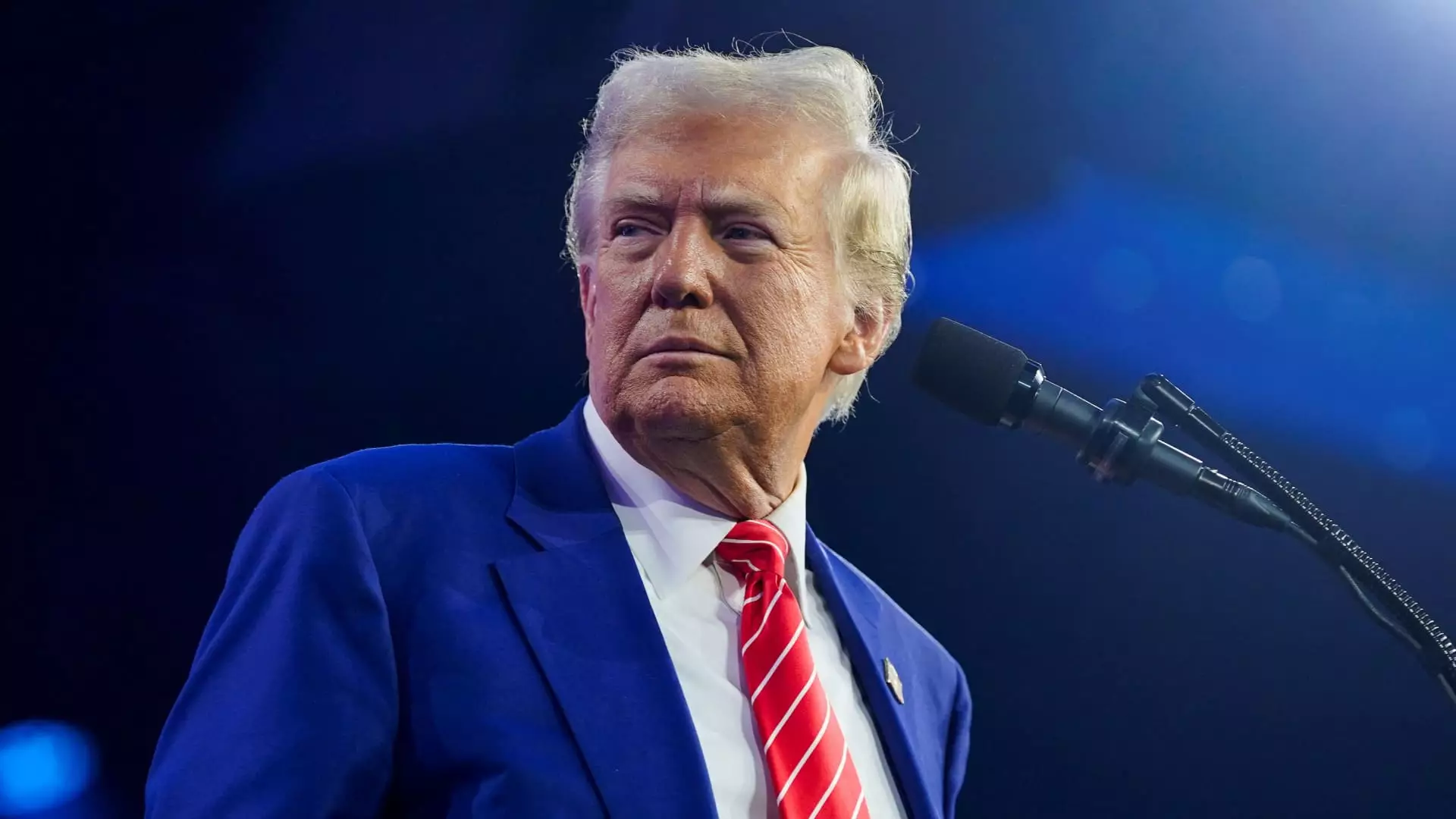The Christmas Day musings of President-elect Donald Trump were far from the typical holiday greetings most Americans anticipated. In a series of posts shared on his Truth Social platform, Trump unleashed a torrent of commentary on international relations, focusing specifically on Canada, Greenland, and the Panama Canal. His rhetoric suggested a bold vision for American territorial expansion and control, underscoring a contentious stance with historical implications.
Trump’s discourse around the Panama Canal invokes a complex and often contentious historical narrative. He highlighted the substantial investment and loss of life that the United States incurred during the canal’s construction over a century ago. By framing his thoughts through this historical lens, Trump aims to legitimize his claims to the canal, arguing that the U.S. has not been afforded its due share in management despite its significant contributions. This perspective, however, overlooks the fact that the United States proactively turned over control of the canal in 1999 as part of a bilateral treaty, thus nullifying many of Trump’s grievances.
Panting in nationalist rhetoric, Trump’s invocation of a mythical injustice regarding the Panama Canal seems like a calculated move to stir patriotism. His remarks about “Billions of Dollars in ‘repair’ money” serve to amplify resentment not just against Panama, but towards the U.S. government as a whole for allowing such “exploitation” to occur. This line of argument could easily resonate with those who feel disconnected from the perceived successes of their leaders, capitalizing on feelings of victimhood.
The suggestion that Canada could become the 51st state is another glaring absurdity in Trump’s Christmas commentary. Referring to Canada’s Prime Minister Justin Trudeau as a “governor” is suggestive of both disdain and a troubling colonial mentality. This delusion of grandeur reflects a pattern established during Trump’s presidency, suggesting that regional allies could be effortlessly brought under American governance, disregarding national sovereignty and the ambitious nature of such an action. Trump heralded this potential annexation with claims that it would reduce Canadian taxes and enhance their military security—blanket promises that are both vague and improbably simplistic.
By conflating tax reductions with the allure of statehood, Trump taps into the pervasive discontent regarding tax policies within the U.S., making his proposal tantalizing to those who see financial freedom as directly tied to smaller government intervention. However, the reality of duplicating the U.S. tax structure in a foreign territory is fraught with logistical and ethical issues that Trump seemingly dismisses.
Trump’s recent rekindling of interest in Greenland underscores his penchant for seizing on geopolitical controversies. His assertion that Greenland is a vital component of U.S. national security mirrors the earlier, more absurd proposal to buy the territory outright. While the significance of Greenland in terms of its natural resources and strategic location is recognized, Trump’s claims to “control” reflect an outdated notion of colonialism rather than modern geopolitical strategy. This perspective is not only irresponsible but also indicative of a troubling trend where leaders engage in nation-building fantasies that disregard the agency of the peoples involved.
The laughter over encouraging Wayne Gretzky to run for Canadian Prime Minister adds to a tone of frivolity mixed with seriousness. It brings to light Trump’s tendency to meld pop culture with politics, as if political leadership is just another game that can be played rather than a serious endeavor.
Mocking President Joe Biden and labeling him as “a man who has absolutely no idea what he is doing” while addressing the “radical left lunatics” suggests a strategic use of comedic ridicule common in Trump’s prior campaigns. This approach adheres to a populist playbook, using humor and derision to galvanize his base. It subtly distracts from policy discussions and the complex realities dictating U.S.-Canada relationships and South American diplomacy.
In essence, Trump’s Christmas commentary serves not just as a display of his governance intentions but reflects a deeper strategy of reinforcing his narrative—a blend of grievance, nationalism, and a compelling yet jarring vision for America’s future. The implications of such rhetoric cannot be understated, as they feed into broader global narratives about power, sovereignty, and international relations in an increasingly volatile world.


Leave a Reply